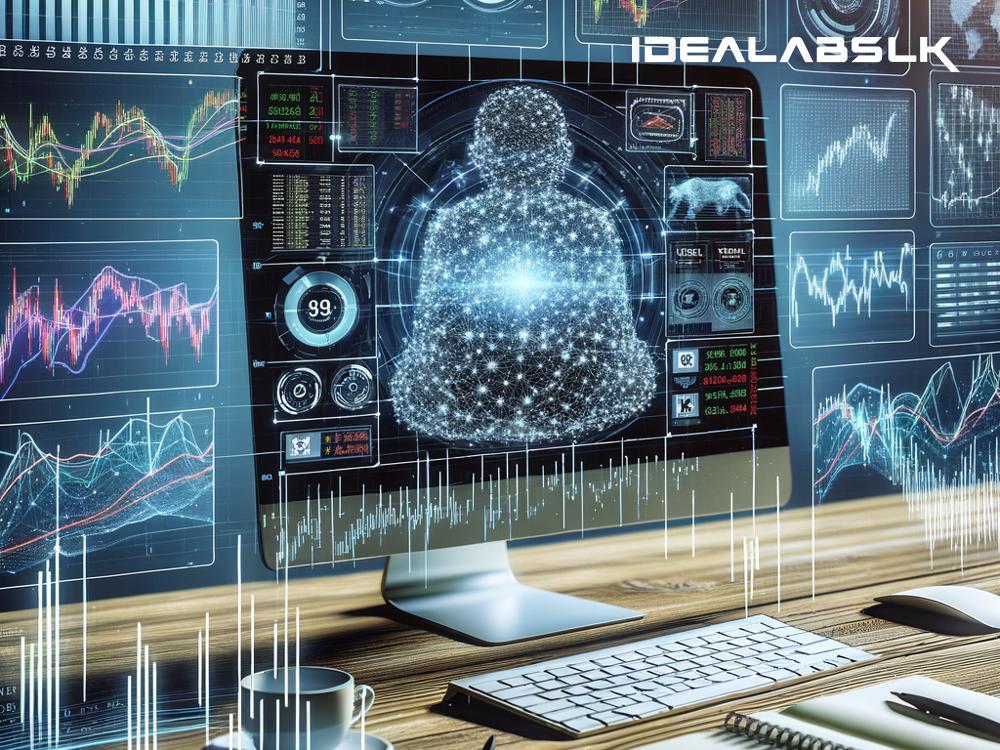AI in Trading: A Leap Towards Efficient Markets Through Machine Learning
In today's era, where the digital world meets finance, a revolution is taking place, reshaping how the markets operate. This revolution isn't led by humans, but by artificial intelligence (AI), particularly through advanced machine learning techniques. It's an exhilarating phase for traders, investors, and financial experts as AI introduces a novel landscape filled with opportunities. But what does this mean for the market, and more importantly, for you? Let’s simplify this complex phenomenon.
Imagine a marketplace, not like your local farmer's market, but a vast, global financial market where instead of fruits and vegetables, stocks, currencies, and other financial instruments are bought and sold. This marketplace is incredibly vast, complex, and moves at lightning speed. Here, information is king. However, the amount of information is so vast that no human can hope to process it all in time to make the constantly right decisions. Enter AI and the specialized branch of AI, known as machine learning.
Machine learning is like teaching a computer to learn from the past to make predictions about the future. It's not about programming a computer with specific instructions for every conceivable scenario but rather enabling it to learn from data patterns and improve its predictions over time. This aspect of AI has found a promising application in the world of trading, making the market more efficient in several ways.
1. Predictive Analytics
One of the critical advantages of using AI in trading is its ability to predict market movements better than any human ever could. Machine learning algorithms can analyze vast amounts of historical data to identify patterns and trends that might indicate the direction in which a stock or the market will move. This predictive power can help traders make informed decisions, reducing the guesswork associated with traditional trading methods.
2. Real-time Decision Making
The market waits for no one. It's a dynamic entity that’s always on the move. Machine learning algorithms can process and analyze data much faster than any human, making real-time decisions and trades. This speed can be the difference between a successful trade and a missed opportunity. By the time a human trader has analyzed the latest news article, an AI system could have already made several lucrative trades.
3. Risk Management
Trading is not just about making profits; it's also about minimizing losses. AI helps in identifying potential risks by analyzing market conditions, historical trends, and other factors that might affect the market. This allows traders and investors to adjust their strategies accordingly, protecting their investments from unexpected market downturns.
4. Eliminating Human Error
Humans are emotional beings, and these emotions can sometimes lead to poor trading decisions. Fear, greed, and hope can all cause a trader to stray from their strategy, often with negative consequences. AI, however, doesn't have these emotional biases. Its decisions are based purely on data analysis, making its trades and strategies more consistent and reliable.
5. Enhanced Market Efficiency
In economics, market efficiency refers to how well market prices reflect all available information. The quick and analytical capabilities of AI contribute significantly to enhancing market efficiency. By rapidly processing and acting on new information, AI-driven trading systems help ensure that prices reflect the latest data, making the market more transparent and fair.
What Does This Mean for You?
The integration of AI in trading might sound like it's only relevant for Wall Street professionals, but it affects everyone involved in the market, including individual investors. The increased efficiency and transparency brought by AI can lead to more stable markets and better opportunities for individual investors to grow their portfolios. Furthermore, numerous investment platforms now incorporate AI-driven tools and analytics, making these advanced capabilities accessible to average investors.
In conclusion, the rise of AI in trading, especially through machine learning, is transforming the financial markets in unparalleled ways. By enhancing predictive analytics, enabling real-time decision-making, improving risk management, eliminating emotional biases, and ultimately making the market more efficient, AI is reshaping the landscape for traders and investors alike. As technology continues to advance, we can only anticipate more profound changes, opening new horizons for market participation and financial growth.
While the complexity of machine learning and its application in trading might seem daunting at first, its benefits are undeniably significant. The future of trading is intertwined with AI, offering a more analytical, strategic, and, most importantly, accessible approach for everyone in the market. Whether you're a seasoned trader or a casual investor, this evolving landscape presents exciting opportunities worth exploring.

